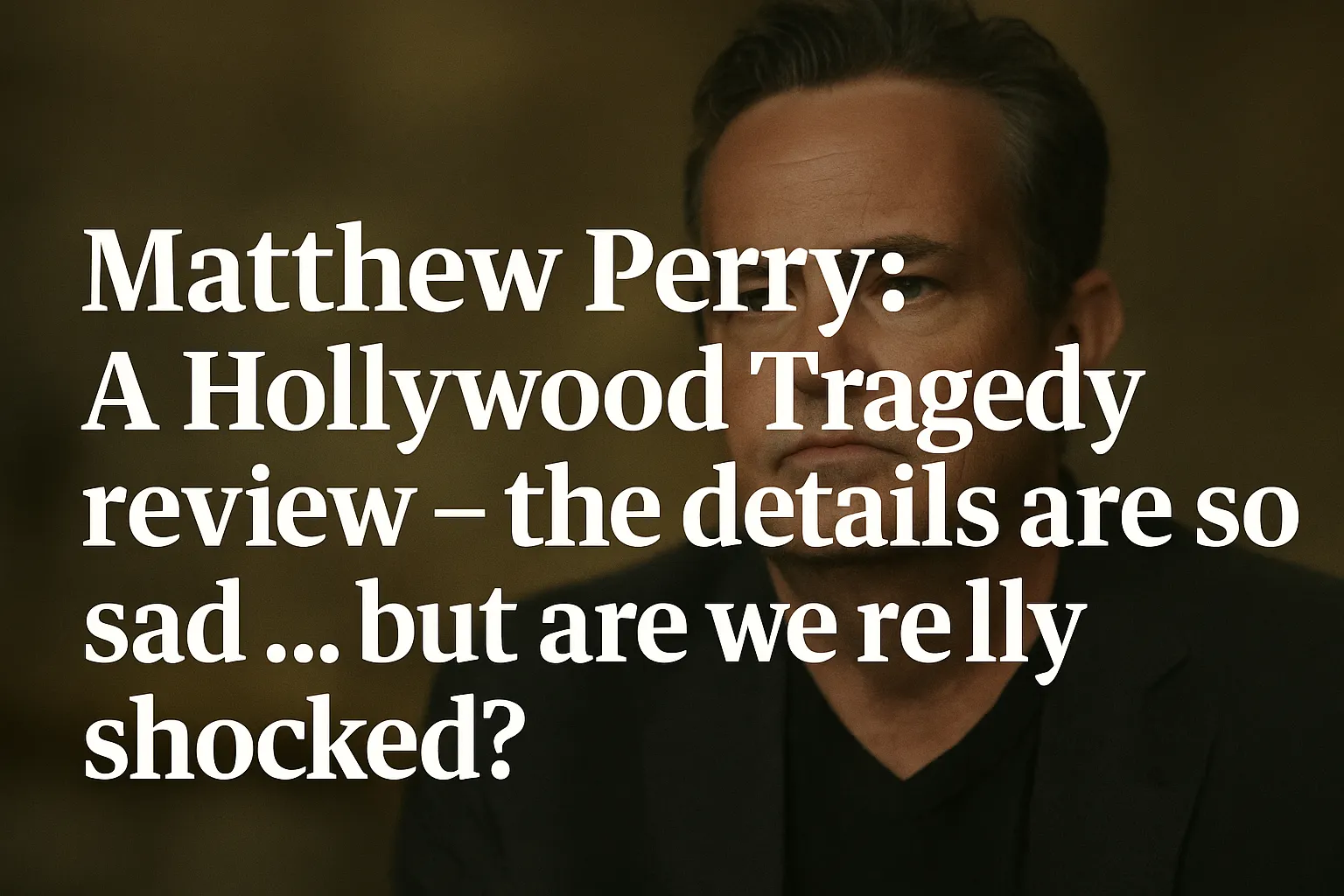Matthew Perry: A Hollywood Tragedy review the details are so sad but are we really shocked?
Another glossy true‑life special asks us to relive Matthew Perry’s rise, relapse and regrets. It is tender in places, exploitative in others, and often moving. Yet the lingering question is whether shock is the right emotion—or whether we’re witnessing a system performing the same sad routine it has perfected for decades.
What the film gets right
- Compassion over caricature: It resists punchlines and treats addiction as illness, not a moral failure.
- Work vs. wellbeing: It shows how a hit sitcom schedule, fame, and constant scrutiny can harden into a trap.
- Small, human moments: Quiet testimonies—friends, colleagues, support staff—carry more weight than montages of headlines.
Where it falls short
- The “revelation” problem: Many details have been public for years; packaging them as fresh shocks feels disingenuous.
- Grief as content: The production sometimes hovers on the line between tribute and traffic, rushing past hard questions about profit and responsibility.
- Systemic blind spots: There’s too little on the economics of pain—agents, insurers, studios, platforms—and how those pressures compound relapse risk.
Are we really shocked?
Not by the facts. What still stings is how predictable this story became in a culture that rewards overwork, hides illness behind charisma, and confuses visibility with care. Perry spoke openly about wanting his struggles to help someone else. The real test is whether we translate that wish into structural change rather than another round of think‑pieces.
The larger Hollywood pattern
Industries built on youth, ratings and relentless delivery are uniquely bad at uncertainty and recovery. When schedules, image contracts and audience expectation collide with chronic illness, the humane choice is expensive. That tension—more than any “shocking detail”—is the tragedy we keep avoiding on screen.
Verdict
Poignant but partial. As remembrance, the film is affecting. As analysis, it settles for familiar beats. If it wants to honor Matthew Perry, it should push viewers—and decision‑makers—to ask what would have made survival easier, not just the ending sadder.
Bottom line
A worthwhile watch for empathy and context, best paired with conversations about labor practices, mental‑health access, and how audiences participate in the cycle they mourn.

